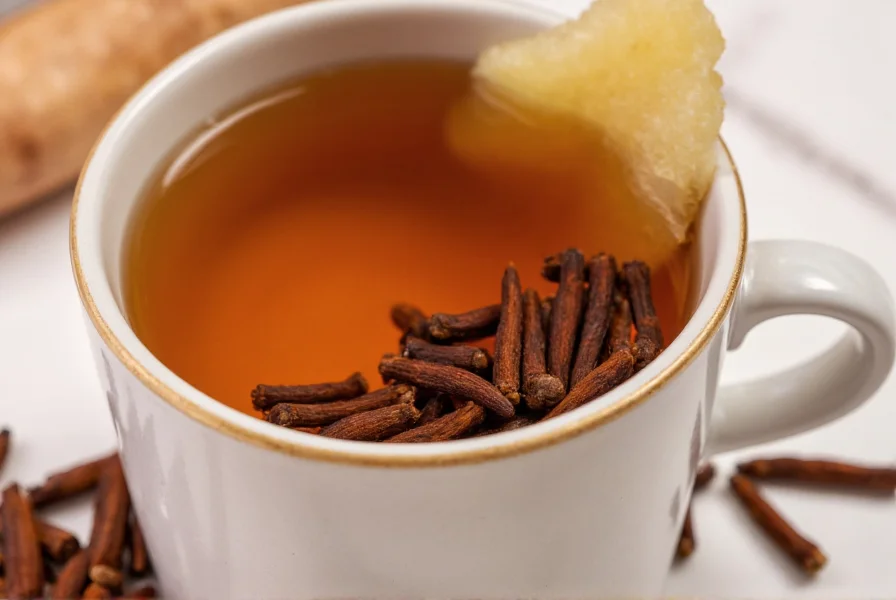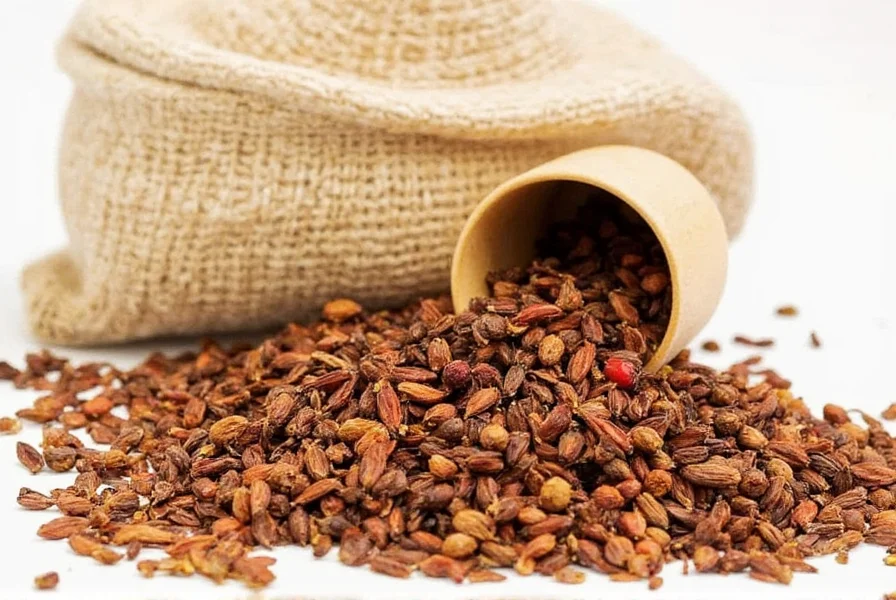Derived from the dried flower buds of the Syzygium aromaticum tree, clove tea has gained popularity for its potential health benefits and distinctive flavor. However, understanding the possible clove tea adverse effects is crucial for safe consumption. This comprehensive guide examines evidence-based information about clove tea safety, helping you make informed decisions about incorporating this herbal beverage into your routine.
Common Mild Side Effects of Clove Tea
Most people tolerate moderate amounts of clove tea well, but some may experience mild, temporary side effects:
- Digestive discomfort - Nausea, heartburn, or stomach upset in sensitive individuals
- Mouth or throat irritation - Particularly when consuming very hot tea
- Temporary taste alterations - The strong eugenol content may affect taste perception briefly
- Mild drowsiness - In some cases, especially when consumed in larger quantities
These mild clove tea reactions typically resolve without intervention and often diminish with continued moderate use as the body adjusts.

Serious Health Risks and Potential Complications
While rare with moderate tea consumption, certain serious side effects of clove infusion require attention:
| Health Risk | Potential Symptoms | At-Risk Population |
|---|---|---|
| Liver toxicity | Nausea, abdominal pain, jaundice | Those with pre-existing liver conditions |
| Bleeding complications | Easy bruising, prolonged bleeding | Individuals on blood thinners |
| Severe hypoglycemia | Dizziness, confusion, sweating | Diabetics on medication |
| Allergic reactions | Rash, swelling, breathing difficulties | Those with spice allergies |
The primary concern stems from eugenol, clove's main active compound. While beneficial in appropriate amounts, excessive eugenol intake from concentrated clove products or very strong tea may lead to these more serious health implications of clove tea consumption.
Vulnerable Populations: Who Should Avoid Clove Tea
Certain groups face elevated risks when consuming clove tea and should exercise particular caution:
Pregnant and Breastfeeding Women
Due to insufficient safety data and potential uterine stimulation effects, healthcare providers generally recommend that pregnant women avoid clove tea. The American Pregnancy Association advises against regular consumption of clove tea during pregnancy due to theoretical risks of miscarriage.
Children Under Age 2
The FDA warns against giving clove tea to infants and toddlers due to potential liver damage and the risk of developing Reye's syndrome. Even small amounts may cause adverse reactions in young children's developing systems.
Individuals with Bleeding Disorders
Clove tea may enhance the effects of blood-thinning medications like warfarin. People with hemophilia or other bleeding disorders should consult their physician before consuming clove tea regularly, as it could increase bleeding risk during dental procedures or surgery.
Safe Consumption Guidelines for Clove Tea
To minimize potential negative effects of clove tea while enjoying its benefits, follow these evidence-based recommendations:
- Limited to 1-2 cups daily for most healthy adults
- Use no more than 1-2 whole cloves per cup of water
- Avoid steeping for longer than 10 minutes to prevent excessive eugenol extraction
- Discontinue use if experiencing any adverse reactions
- Consult your healthcare provider if taking medications regularly
Remember that "natural" doesn't automatically mean "safe." The concentration of active compounds in herbal teas like clove tea determines both benefits and potential risks. Proper preparation methods significantly impact the safety profile of clove tea consumption.
When to Seek Medical Attention
Contact a healthcare professional immediately if you experience:
- Signs of allergic reaction (hives, swelling, difficulty breathing)
- Unexplained bleeding or bruising
- Persistent nausea or vomiting
- Jaundice (yellowing of skin or eyes)
- Severe abdominal pain
- Symptoms of low blood sugar if diabetic
When discussing clove tea side effects with your doctor, provide details about your consumption pattern, including how many cups you drink daily, preparation method, and duration of use. This information helps healthcare providers determine if symptoms are related to clove tea consumption.
Conclusion: Balancing Benefits and Risks
Clove tea offers potential health benefits when consumed responsibly, but awareness of possible side effects of clove infusion is essential. For most healthy adults, moderate consumption presents minimal risk, while certain populations should avoid it entirely. Always prioritize safety by starting with small amounts, monitoring your body's response, and consulting healthcare professionals about potential interactions with medications or existing health conditions. By understanding both the benefits and limitations of clove tea, you can make informed decisions about incorporating this traditional herbal beverage into your wellness routine.
Frequently Asked Questions
Can clove tea cause liver damage?
While moderate consumption of properly prepared clove tea is unlikely to cause liver problems in healthy individuals, excessive intake of concentrated clove products may potentially lead to liver toxicity. The eugenol in cloves, when consumed in very high amounts, has been associated with liver damage in rare cases. People with pre-existing liver conditions should consult their physician before regularly consuming clove tea.
Is clove tea safe for people taking blood thinners?
Clove tea may interact with blood-thinning medications like warfarin due to its natural anticoagulant properties. Regular consumption could potentially increase bleeding risk, especially before surgical procedures. If you take blood thinners, consult your healthcare provider before adding clove tea to your routine, and monitor for signs of excessive bleeding such as easy bruising or prolonged bleeding from minor cuts.
How much clove tea is considered safe to drink daily?
For most healthy adults, 1-2 cups of properly prepared clove tea per day is generally considered safe. This typically means using no more than 1-2 whole cloves per cup of water, steeped for 5-10 minutes. Exceeding these amounts regularly may increase the risk of experiencing negative side effects of clove tea. Individual tolerance varies, so start with smaller amounts to assess your body's response.
Can clove tea lower blood sugar too much?
Clove tea may have blood sugar-lowering effects, which could potentially cause hypoglycemia (dangerously low blood sugar) in people with diabetes who are already taking medication to control their blood sugar. If you have diabetes, monitor your blood glucose levels closely when consuming clove tea and consult your healthcare provider about potential interactions with your diabetes medications.
Are there any long-term side effects of drinking clove tea regularly?
Limited research exists on the long-term effects of regular clove tea consumption. While moderate consumption appears safe for most adults over extended periods, potential concerns include possible interactions with medications over time, gradual development of sensitivities, or cumulative effects in susceptible individuals. As with any herbal product, taking periodic breaks from consumption may be prudent, and consulting with a healthcare provider about long-term use is recommended, especially if you have chronic health conditions.











 浙公网安备
33010002000092号
浙公网安备
33010002000092号 浙B2-20120091-4
浙B2-20120091-4